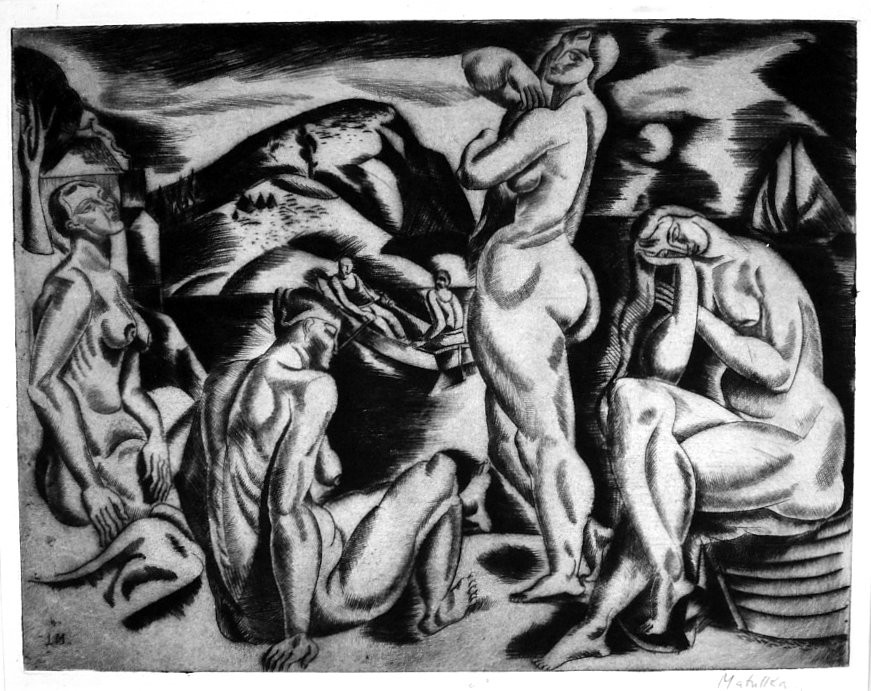Jan Matulka (1890-1972), Four Nudes in a Landscape, drypoint, c. 1923, signed in pencil lower right margin [also with initials in the plate lower left]. Reference: Flint 4, only state. Edition: no edition, only several proofs were made. In very good condition, with margins, 10 11/16 x 13 15/16, the sheet 12 1/2 x 17 inches. On laid Strathmore Japan paper, with their watermark, deckle edges top and bottom, archival mount with window mat.
A fine fresh impression, a rare proof (no edition is known), with extensive burr from the drypoint work, and a substantial layering of plate tone.
Born in Prague, Czechoslovakia, in 1890, Jan Matulka became a leading American modernist working at the same time as Lozowick to develop the earliest American Precisionist work, and with Stuart Davis to evolve a new form of Americanized Cubism.
In 1907, he came to the Bronx, New York where he had a poverty-ridden childhood with a mother who tried to raise a family by herself. From 1908 to 1917, he studied at the National Academy of Design, and in 1917, received the first Pulitzer traveling scholarship with which he traveled and painted in the Southwest and Florida.
In 1919, he first went to Paris, where he was exposed to European modernism, (especially Cubism). Four Nudes reflects both the realism that was always a theme in Matulka’s work and also a Cubist idiom that he was to work with through the years. Matulka often varied his approach from rather conventional realism to cutting edge modernism, even during the same periods.
Matulka had his first one-man exhibit in New York City in 1925. His reputation as an iconoclast and loner, oblivious to the workings of the art world, prevented him from achieving the fame that was his due during his lifetime, but he has substantial and increasing recognition, especially among artists and curators, in recent years. He continued to paint until he died, in New York City, in 1972.



